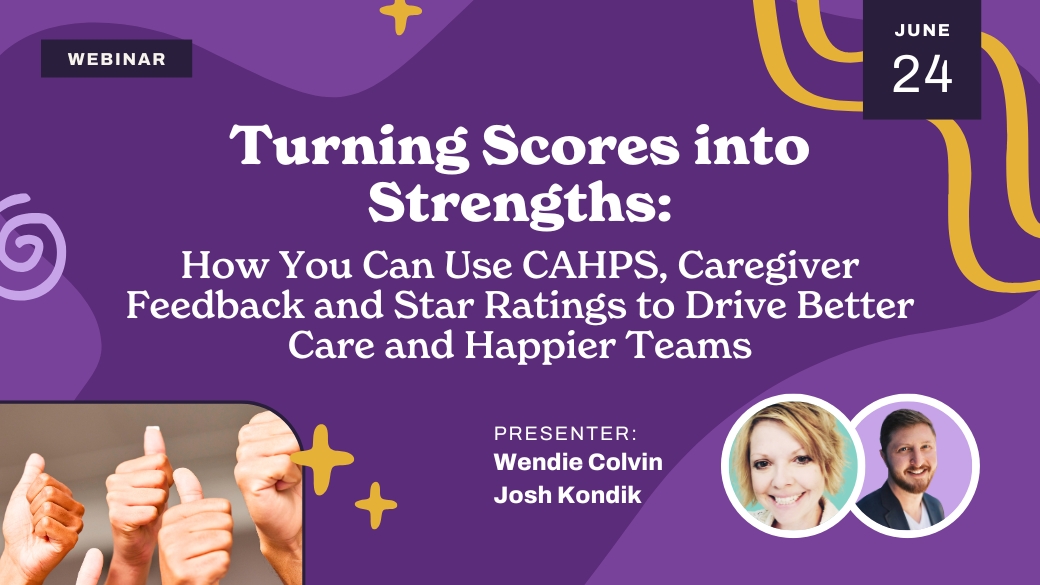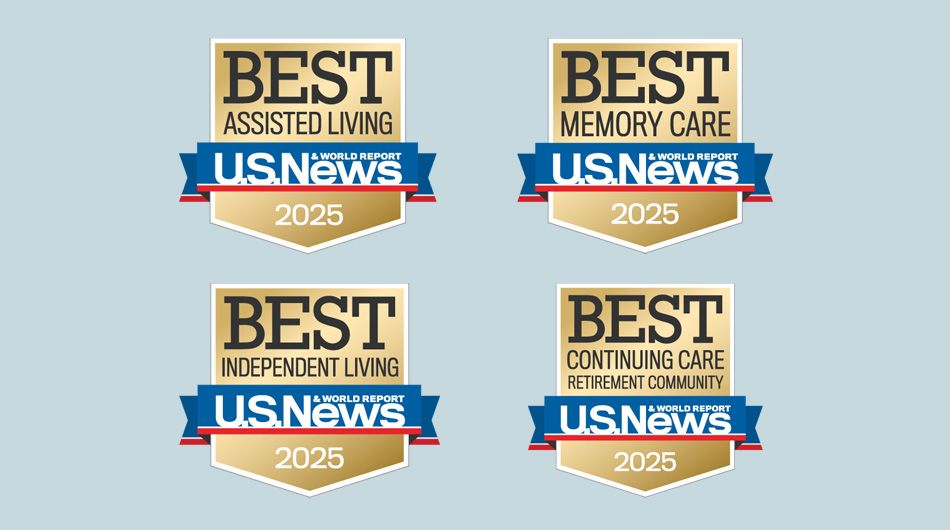How to Cultivate Competence and Cultural Diversity in Your Healthcare Business
Though the United States came to be known as the “melting pot” of the world, it has evolved into more of a “salad bowl.” Rather than blending into one cohesive unit, each individual culture has maintained distinct qualities, creating more of a mosaic. This, of course, is not a bad thing, and has opened our nation and its citizens up to a world of cultural and religious beliefs, opportunities, and opinions. However, ignoring the diversity of the clients you serve can have severe consequences for your healthcare business.
It’s important for post-acute care providers to keep this image in mind to foster a culturally competent environment. This goes beyond simply acknowledging the diversity of the individuals served; it’s a matter of actively cultivating inclusivity, respect, and understanding while honoring the backgrounds, choices, and preferences of each individual client.
What is Cultural Competence?
Cultural competence is the ability to effectively interact, communicate, and build relationships with people from diverse cultural backgrounds. In the context of post-acute care, it goes beyond surface-level understanding and delves into recognizing, respecting, and integrating the values, beliefs, customs, and traditions of clients and their families into every aspect of care.
At its core, cultural competence requires empathy—the willingness to step into the shoes of another and view life from their perspective. This helps caregivers and healthcare providers deliver services that honor a client’s unique cultural identity, ensuring their needs are not only met but truly understood.
For example, cultural competence may involve understanding dietary preferences influenced by religious beliefs, recognizing the significance of traditional healing practices, or being aware of cultural norms surrounding family roles in decision-making. It also includes acknowledging how language barriers and historical mistrust of healthcare systems can impact a client’s willingness to engage in care. In our rapidly diversifying society, cultural competence is not a static skill but a continuous process of learning and adapting. It calls for active listening, self-awareness, and ongoing education to confront and address unconscious biases. For post-acute care providers, this means integrating cultural competence into hiring, training, and care delivery practices to create an inclusive environment.
Why Cultural Competence Matters
It goes without saying that respect and dignity are universal rights. Being a culturally competent care provider alleviates stereotypes and prejudices, while allowing you to better communicate, problem-solve, and empathize with those you serve. Ultimately, cultural competence is not just a moral obligation but a practical necessity. It enhances the quality of care, fosters stronger client relationships, and ensures that care providers can meet the diverse needs of the communities they serve. Other benefits include:
- 1. Elevating your level of care: Culturally competent care leads to better outcomes for clients. By understanding their cultural preferences and practices, caregivers can provide care that is more effective and meaningful. This includes everything from dietary restrictions and communication styles to cultural customs and religious observances. By incorporating cultural sensitivity into your caregiving approach, you not only enhance the quality of care but also demonstrate your company’s dedication to meeting the unique needs of each client.
- 2. Building trust: When clients feel that their cultural identity is respected and valued, they are more likely to trust their care providers and engage in the care process. Trust is essential for building strong relationships and ensuring client satisfaction. By prioritizing cultural competence in your branding and service delivery, you lay the foundation for trust and rapport between care professionals and clients, fostering a supportive and conducive care environment.
- 3. Promoting inclusivity: By embracing cultural competence, you can create an inclusive environment where clients from diverse backgrounds feel welcomed and valued. This not only benefits clients but also contributes to a positive work culture for care team members. When care professionals feel supported in providing culturally sensitive care, they are more motivated and fulfilled in their roles, leading to better client outcomes and overall care company success.
Tips for Cultivating Cultural Competence
Cultural competence is not an inherent skill, so to ensure your care providers and staff are equipped to support clients from all backgrounds, it’s essential to provide them with the tools and training they need to succeed. When building a culturally competent workforce, focus on these best practices:
- Education and training: Provide ongoing cross-cultural education and training for care team members, including how to detect and address subtle or invisible cultural differences, how to implement and practice global dexterity, and sensitivity training, just to name a few.
- Community engagement: Build relationships with community organizations and cultural groups to gain insights into the diverse populations you serve. This can help you better understand their needs and preferences and tailor your services accordingly.
- Language access: Ensure language access for clients who may have limited English proficiency. This may involve providing interpretation services or hiring care professionals who are fluent in the languages spoken by your clients.
- Attentive awareness. Be more aware of the cultural differences around you in your everyday life, and encourage your care staff to do the same. This can be as simple as striking up a conversation with someone standing behind you in line at the store, or listening to differing viewpoints respectfully and without judgment.
- Foster an inclusive workplace culture: Cultivate an environment within your post-acute care company that values diversity and promotes inclusivity among staff members. Encourage open dialogue about cultural differences and provide opportunities for employees to share their perspectives and experiences. By fostering a workplace culture that celebrates diversity, you not only attract and retain a diverse workforce but also set a positive example for how to interact respectfully and collaboratively with clients from various backgrounds.
Rebranding for Cultural Diversity in Healthcare
In addition to fostering cultural competence within your organization, be sure to carry it through in your branding. This includes everything from your website and marketing materials to your care company culture and values. Showcasing your commitment to diversity and inclusion in healthcare not only helps your current clients feel more supported but also shows prospective clients that your company can be trusted to handle their unique needs and circumstances. Here are some ways to rebrand your agency to emphasize your commitment to diversity:
- Diverse representation: Strive to reflect the rich tapestry of the communities you serve in all of your marketing materials. Incorporate imagery and language that showcase people of different ages, ethnicities, and backgrounds. By embracing diversity in your visuals, you not only demonstrate inclusivity but also make potential clients feel seen and valued.
- Cultural sensitivity: Your branding should always be culturally sensitive and respectful. Avoid falling into the trap of stereotypes or clichés. Instead, aim to authentically represent diverse cultures with nuance and accuracy. This approach not only strengthens your brand’s integrity but also fosters trust and connection with clients from various backgrounds.
- Highlight your values: Make your care company’s commitment to cultural competence and diversity evident throughout your branding. From your mission statement to your website and promotional materials, clearly communicate that you prioritize respecting and honoring the cultural identities of your clients. By doing so, you reassure potential clients that they will receive care that aligns with their values and backgrounds.
- Get out in the community: Actively engage with diverse communities by participating in local events and initiatives. Being involved in a diverse range of causes will help you increase your company’s visibility, establish meaningful connections with potential clients and caregivers, and reinforce your commitment to serving diverse populations in a genuine and impactful way.
- Tailor services to cultural needs: Take proactive steps to customize your services to meet the specific cultural needs and preferences of your clients. This may involve offering culturally appropriate meal options, incorporating traditional healing practices into care plans, or adjusting communication styles to align with cultural norms. By demonstrating attentiveness to cultural nuances, you show clients that their cultural identities are respected and valued, ultimately enhancing the quality of care and strengthening client satisfaction.
Prioritize Cultural Competence, Diversity, and Inclusion in Your Post-Acute Care Business
Cultural competence is not just a buzzword; it’s a fundamental aspect of providing high quality post-acute care services. By prioritizing cultural competence within your organization and reflecting your commitment to diversity in your branding, you can create an inclusive and welcoming environment where all clients feel respected and valued. Embracing cultural diversity not only enhances the quality of care but also strengthens relationships and fosters a sense of belonging for both clients and care professionals.
One of the best ways to accomplish this is by partnering with a care marketing company that understands cultural competency, embraces diversity and the uniqueness of each individual, and has the experience and expertise to help you clearly articulate your commitment to providing exceptional care services to all. However, cultural competence goes beyond how you market your company and services. Activated Insights can help train your staff through specialized courses and diversity deep-dives, ensuring all caregivers are prepared to care for any client that walks through your door. To learn more about Activated Insights training, contact our experts today.
About Marisa Snook
Marisa Snook, President/CEO, has worked in public relations and marketing for over 20 years with a focus on post-acute care marketing since 2005. She was instrumental in developing Corecubed‘s award-winning care marketing program, MOSTSM. Specializing in digital and content marketing for care companies in all stages of growth, she leads an extraordinarily talented team whose bench strength includes decades of care marketing experience, digital marketing degrees, and content writing and search marketing certifications. To learn more about Corecubed‘s services, call 800.370.6580, or visit corecubed.com.
Related Posts











